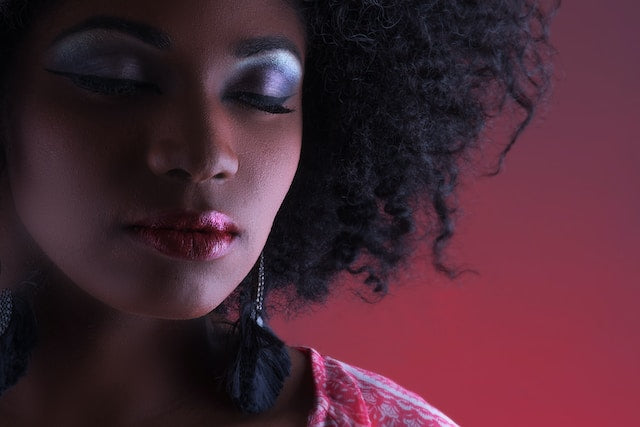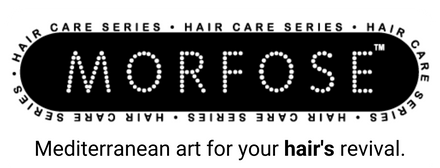The Role of Nutrition in Professional Hair Care
Posted by MORFOSE COSMETICS

The Role of Nutrition in Professional Hair Care
Introduction
In the quest for healthy and lustrous hair, it's essential to understand the significant role that nutrition plays in professional hair care. While there are numerous factors that contribute to good search rankings on Google, the quality of content remains paramount. In this article, we will delve into the connection between nutrition and hair health, exploring how a well-balanced diet, rich in essential nutrients, can promote strong, shiny, and vibrant hair. Let's uncover the secrets to achieving enviable locks through proper nutrition.
The Foundations of Healthy Hair
Understanding Hair Structure
Before we delve into the role of nutrition, it's crucial to comprehend the structure of hair. Each hair strand is composed of a protein called keratin, which is responsible for its strength and resilience. The hair follicles beneath the scalp produce sebum, a natural oil that lubricates and nourishes the hair. Consequently, maintaining optimal nutrition becomes crucial for healthy hair growth and maintenance.
Key Nutrients for Hair Health
1. Protein - The Building Block
Protein is the fundamental building block of hair, making it an indispensable component of any hair care routine. Rich sources of protein, such as lean meats, fish, eggs, and legumes, provide the necessary amino acids required for hair growth and strength. Ensuring an adequate intake of protein promotes the production of keratin, enhancing hair texture and minimizing breakage.
2. Essential Vitamins and Minerals
a. Biotin - The Beauty Vitamin
Biotin, also known as vitamin B7, plays a pivotal role in maintaining healthy hair. It aids in the production of keratin, promotes hair growth, and helps prevent hair loss. Foods like eggs, nuts, whole grains, and spinach are excellent sources of biotin that should be incorporated into one's diet.
b. Vitamin E - Antioxidant Powerhouse
Vitamin E is a potent antioxidant that combats oxidative stress, a major contributor to hair aging and damage. It protects the scalp from environmental pollutants and nourishes the hair follicles. Including foods like avocados, almonds, and sunflower seeds in your diet ensures an adequate supply of vitamin E for hair health.
c. Iron - Oxygenating the Scalp
Iron is crucial for maintaining proper blood circulation, ensuring adequate oxygen supply to the hair follicles. Iron deficiency can lead to hair loss and dullness. Incorporating iron-rich foods such as leafy greens, red meat, lentils, and fortified cereals can help prevent these issues and promote vibrant hair.
d. Zinc - Balancing Scalp Health
Zinc plays a vital role in regulating sebum production, maintaining scalp health, and preventing dandruff. Foods like oysters, beef, pumpkin seeds, and legumes are excellent sources of zinc that support optimal hair condition.
3. Omega-3 Fatty Acids - Nourishing from Within
Omega-3 fatty acids are essential fats that promote hair health by nourishing the scalp and hair follicles. They provide hydration, reduce inflammation, and improve hair strength. Including fatty fish like salmon, walnuts, flaxseeds, and chia seeds in your diet can significantly contribute to maintaining glossy and resilient hair.
A Holistic Approach to Hair Care
While proper nutrition is vital for hair health, it is essential to adopt a holistic approach to hair care. Incorporating the following practices into your routine will complement the benefits of a nutrient-rich diet:
Hydration - Water for Hair
Staying adequately hydrated is crucial for maintaining the moisture balance of your hair. Drinking sufficient water throughout the day ensures that your hair remains hydrated, preventing dryness and brittleness.
Regular Hair Care Routine
A consistent hair care routine, including gentle cleansing, conditioning, and regular trimming, is essential for healthy hair growth. Choose hair care products that are suitable for your hair type and avoid excessive use of heat-styling tools that can damage the hair shaft.
Stress Management - Calm the Mind, Nurture the Hair
Stress can adversely affect overall well-being, including hair health. Engaging in stress-reducing activities such as meditation, exercise, and pursuing hobbies can contribute to maintaining healthy hair by minimizing stress-induced hair loss.
Protecting Hair from Environmental Damage
Exposure to harsh environmental elements like UV rays, pollution, and excessive heat can damage hair and cause it to become dry and brittle. Wearing protective hats or scarves, using heat protectant sprays, and minimizing exposure to direct sunlight can help preserve the health and vitality of your hair.
Conclusion
In conclusion, nutrition plays a crucial role in achieving and maintaining professional-quality hair. A well-balanced diet, rich in protein, biotin, vitamins, minerals, and omega-3 fatty acids, provides the necessary building blocks for healthy hair growth and resilience. By adopting a holistic approach to hair care, including hydration, a regular hair care routine, stress management, and protective measures, you can optimize the benefits of a nutrient-rich diet. Remember, healthy hair starts from within, and nourishing your body with the right nutrients will ultimately lead to vibrant, strong, and enviable locks.
So, why wait? Embrace the power of nutrition and unlock the secret to professional hair care today!


